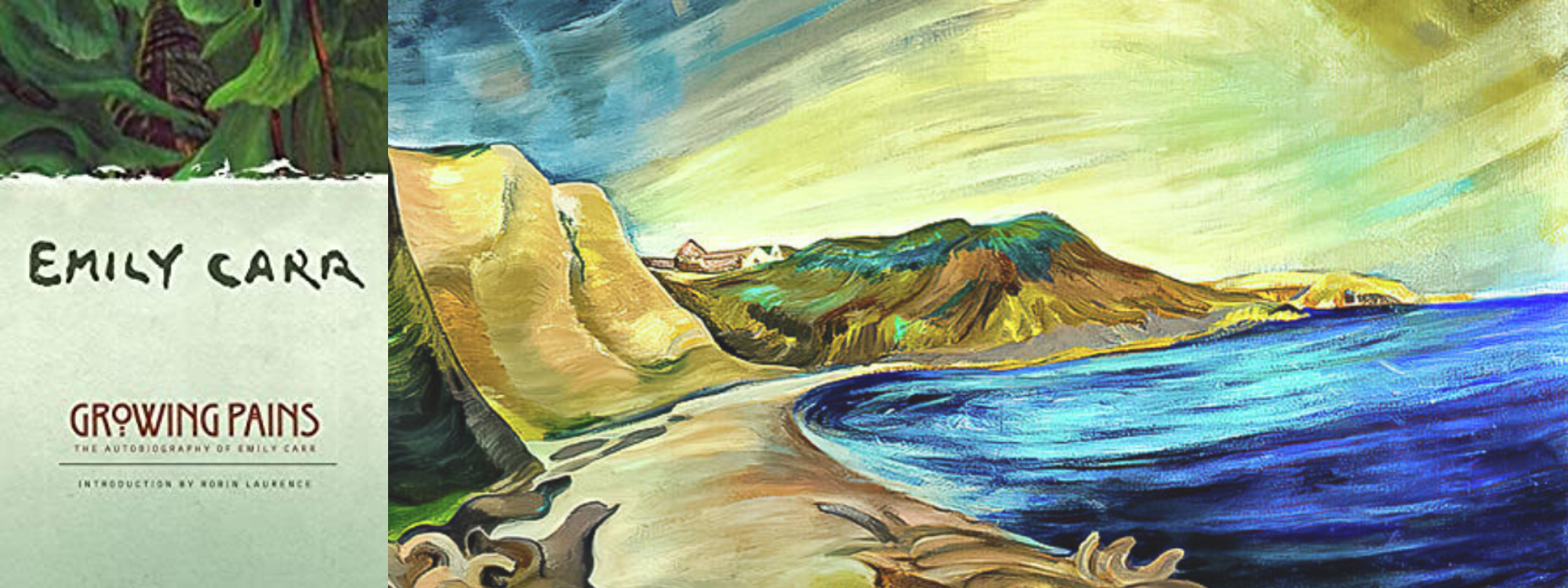Exit Mrs. Piddington, and vice and terror faded from my consciousness. Free, unfearful I roamed San Francisco interested in everything, most particularly interested in my art studies. Suddenly I was brought face to face with Piddington horrors again.
I was taking guitar lessons from an old German professor. The frets on my guitar needed resetting, the professor said.
“Take to de’ musics-man he sharge you big moneys. My fren’ dat make fiddle he do sheep for you!”
He wrote an address on a card and off I started, my guitar in a green cloth bag. I called in at Adda’s on the way. It was Saturday afternoon. We often spent the half holiday together.
“Where are you going?”
“To get my guitar fixed.”
“I’ll come for the walk.”
“Hurry then, Adda, it dusks early.”
On and on we tramped. It seemed a very long way but we asked direction now and again from people we met. Yes, we were going in the right direction but—they looked at us queerly as if they wondered.
By and by the smells of the sea and tarry wharf smells met our noses. Ah, here was the name on our card. We turned into a wide, quiet street. It had an abandoned, strange look. In front of us was a great building with a sign, “Telegraph Hill Foundry and Storage”. Telegraph Hill! “Why, Adda, this is the awful, wicked place Captain pointed out as we came through the Golden Gate, the place I was never to go near.”
“It does look very queer,” said Adda. “Shall we turn back?”
“No, this is number 213. Ours will be two blocks further on. It is best to show our business but it is almost too dark to see the numbers over the doors.”
We walked the two blocks in silence except that I said, “Adda, let’s walk in the middle of the street.”
Suddenly a burst of light from street lamps and simultaneously over every door came a little red twinkling light. There were big shop windows dazzlingly bright on either side of the way. In them were displayed, not goods but women, scantily clad women, swaying in rocking chairs and showing a great deal of leg. Some toyed with fancy work, some simpered, some stared with blank, unseeing eyes, all rocked restlessly.
“Momma, Momma!” gasped Adda again. “Shall we turn back?” she asked of me.
My head shook. I shook all over because of Mrs. Piddington’s horrible tales.
“Here’s the great mock fiddle. I’ll go in and show why I came. Oh, Adda!”
I was quaking. “Hold the door wide, Adda, don’t let them shut me in! Don’t, don’t!”
Adda braced, spread her members like a starfish, clinging octopus-wise to the floor and to all sides of the door’s frame.
The little shop was full of men and smoke. There was only one dim light in the place. An old man pushed forward to take the green bag from my arms. He took the guitar out, touched her strings lovingly.
“She is sweet-toned,” he smiled down at me, “but these frets, ach, they tear the little fingers! She is ready Monday.”
He laid the instrument upon his work shelf.
Adda released the door posts and grabbed me as if I had just come back from the dead. Momma herself could not have been more protecting towards me, more belligerent towards my danger than was dear, staunch Adda.
We hurried into the middle of the street with firm stepping, determined not to break into a tell-tale run. We nearly burst ourselves for wanting to draw deep breaths and not daring to do so for hurry and worry. We turned the corner and met a policeman. I never knew a policeman could look so beautiful, so safe.
“Momma, Momma, if you knew!” whispered Adda, to me, “Of course you won’t go back for the guitar, Dummy?”
“I must, Adda. It belongs to my big sister. You see if I went home without it I would have to explain—and then . . . !”
“I’ll go with you, but I won’t tell Momma till afterwards. Of course I couldn’t deceive Momma. I must tell sometime, but after will be best.”




0 comments